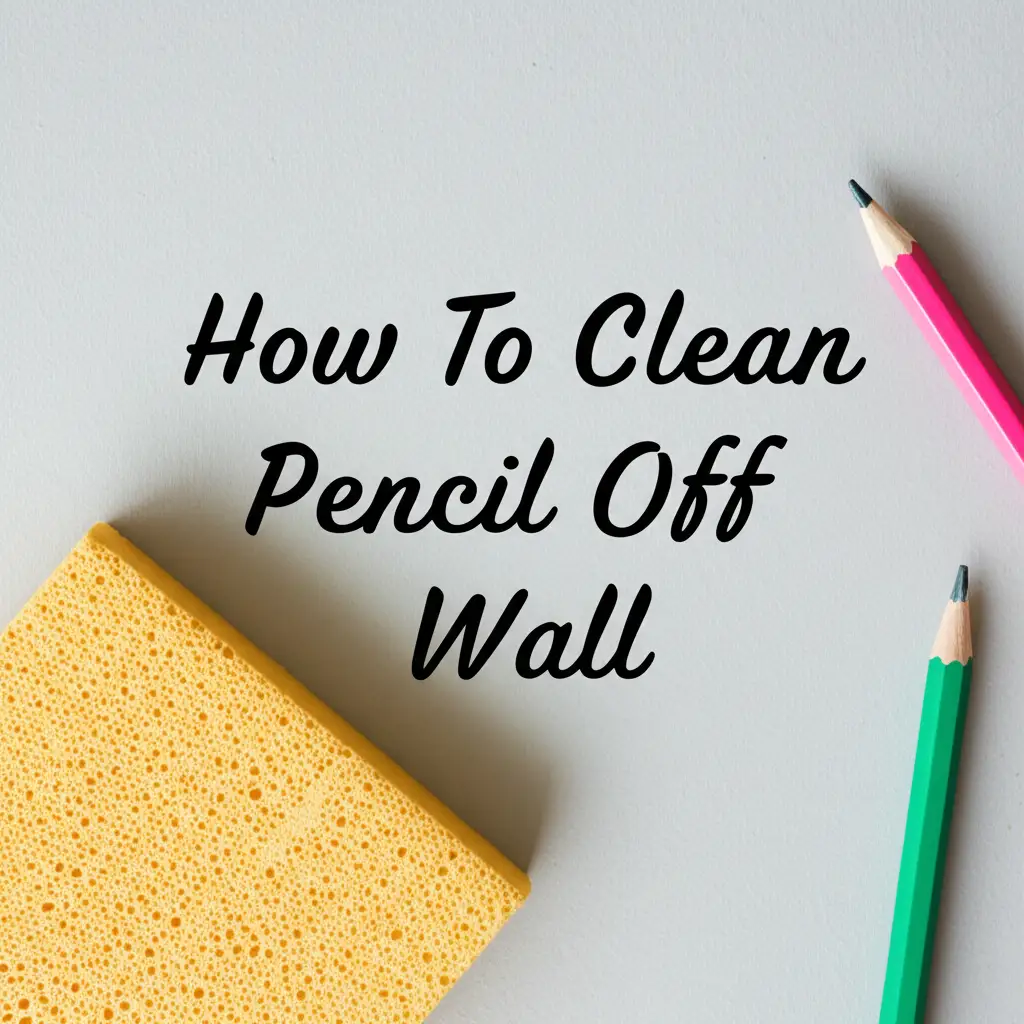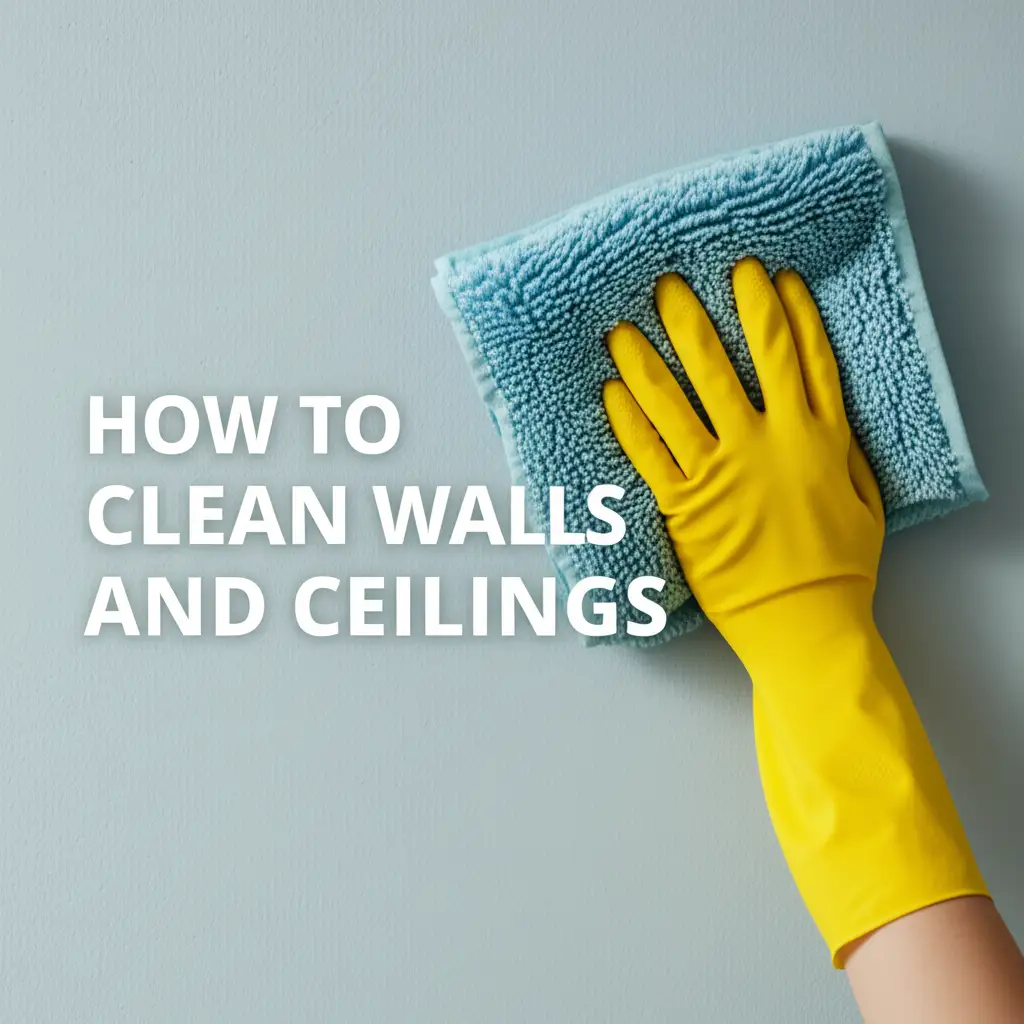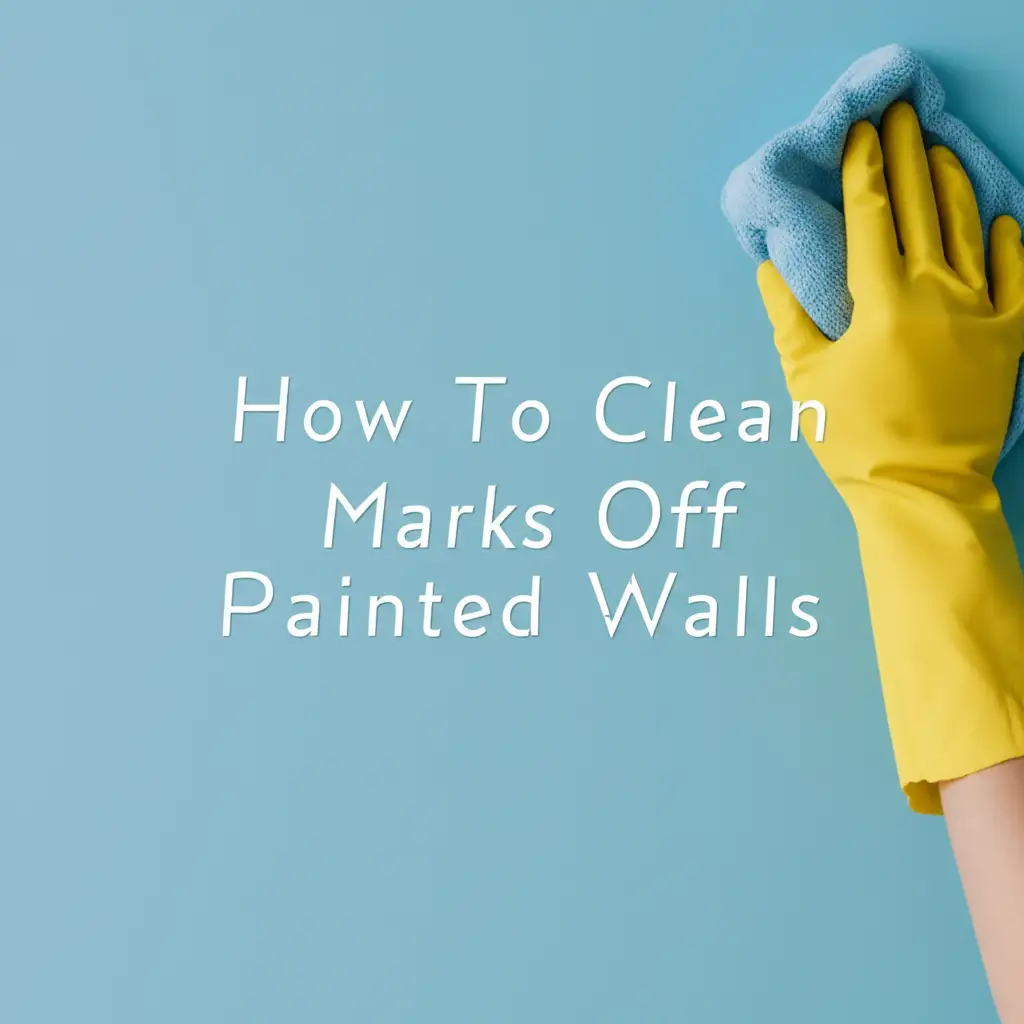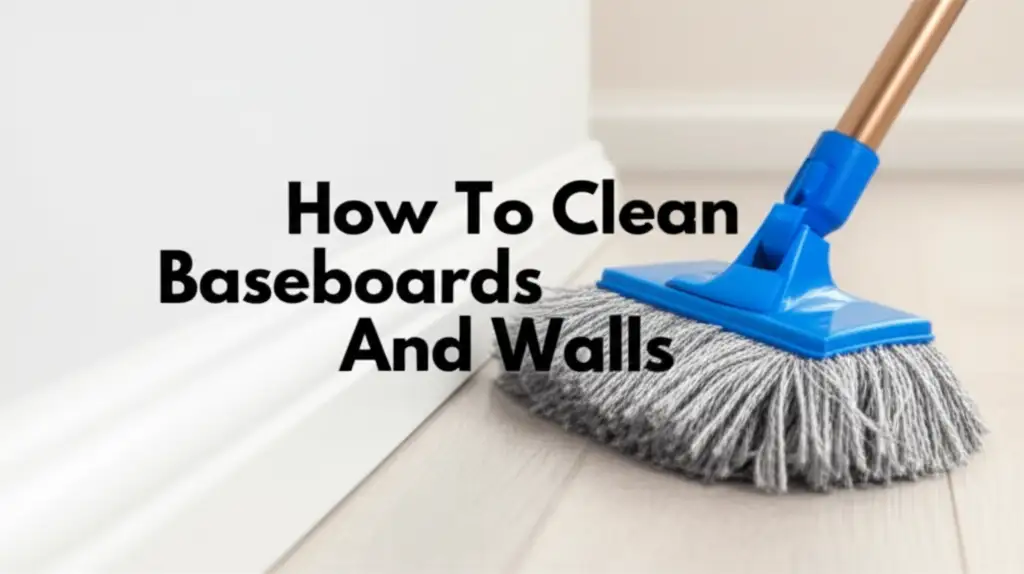· Home Cleaning · 16 min read
How To Clean Garage Walls
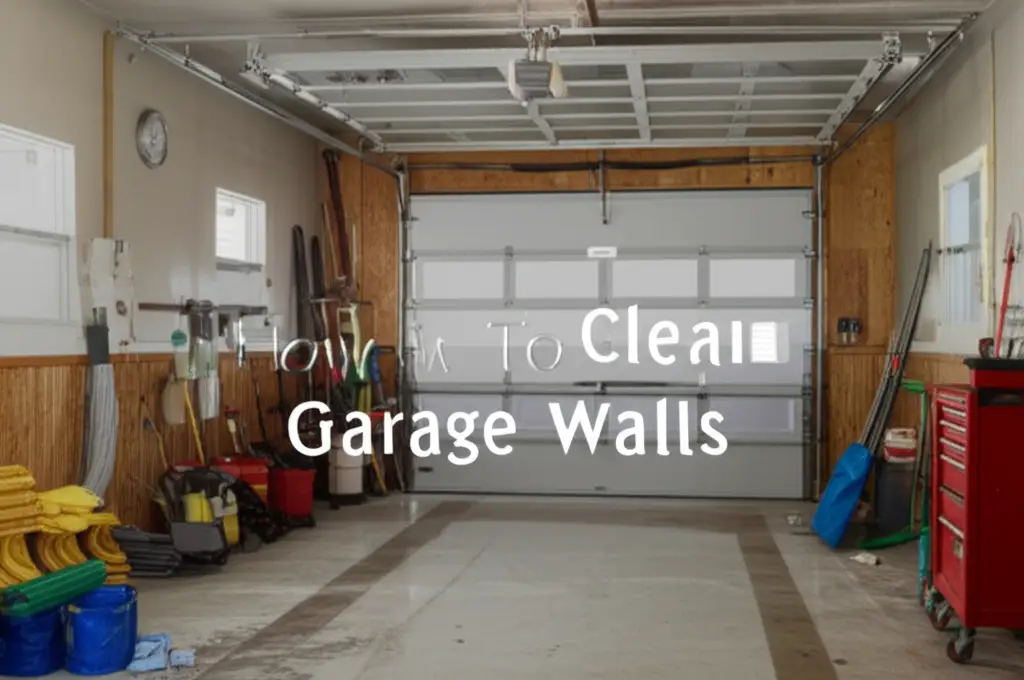
Clean Garage Walls: A Complete Guide
The garage often becomes a forgotten space, a catch-all for tools, storage, and forgotten projects. We focus on organizing shelves and sweeping floors. However, garage walls gather a lot of dirt, dust, and grime over time. These surfaces can accumulate cobwebs, grease, oil splatters, and even mold. Learning how to clean garage walls can transform your entire garage. It makes the space look much better. It also creates a healthier environment. This article guides you through the process step-by-step. We cover everything from gathering supplies to tackling tough stains. We also share tips for maintaining your newly clean walls.
Takeaway
Cleaning your garage walls effectively means:
- Gathering the right tools and cleaning solutions.
- Preparing the area by clearing items and protecting surfaces.
- Applying general cleaning techniques for dirt and dust.
- Using specific methods for oil, grease, and mold stains.
- Prioritizing safety with proper ventilation and protective gear.
- Maintaining cleanliness with regular upkeep.
Clear, Concise Answer
To clean garage walls, first remove clutter and sweep surfaces. Then, use a general cleaner like dish soap and warm water with a sponge or soft brush for light dirt. For tough stains like grease or mold, apply specific cleaning agents. Always rinse thoroughly and allow walls to dry completely to prevent new issues.
Why Cleaning Garage Walls Matters
Your garage is more than just a place to park your car. It often serves as a workshop, storage area, or even a home gym. Over time, the walls in this space collect a lot of dirt. They can get covered in dust, cobwebs, and various stains. Cleaning garage walls improves the look of your entire garage. It makes the space feel cleaner and more inviting.
Beyond aesthetics, cleaning your garage walls has important benefits. Dirty walls can hold allergens. They might also harbor pests or mildew. A clean environment is healthier for you and your family. Regular cleaning also helps protect your wall surfaces. It extends the life of paint or other finishes. This simple task contributes to overall home care.
Cleaning your garage walls helps you find things more easily. A bright, clean space lets you spot tools and stored items quickly. It reduces the chance of misplacing things in shadowy corners. Think of it as an important part of maintaining your entire property. A clean garage adds value to your home. It shows you care for your living space.
Essential Tools and Supplies for Garage Wall Cleaning
Before you start cleaning, gather all necessary tools and supplies. Having everything ready makes the job smoother. You will avoid interruptions during the cleaning process. The right equipment also helps you clean more effectively and safely.
- Safety Gear: Always wear protective gear. This includes work gloves, safety glasses, and a dust mask. Good ventilation is also important when using cleaning solutions.
- Cleaning Brushes and Sponges: You need various types. A stiff-bristled brush works well for concrete walls. A soft sponge or microfiber cloth suits painted drywall. Keep a scrub brush handy for tough spots.
- Buckets: Prepare two large buckets. One holds clean water or a cleaning solution. The other collects dirty rinse water. This keeps your cleaning solution effective.
- Vacuum Cleaner: A shop vacuum is ideal. It handles large debris, dust, and cobwebs easily. Use it with appropriate attachments to reach high areas and corners.
- Ladders or Step Stools: Reach high walls and ceilings safely. Choose a stable ladder. Ensure it is tall enough for you to work comfortably without overreaching.
- Drop Cloths or Tarps: Protect your garage floor and items from drips and spills. Lay them down before you begin washing the walls. This also helps contain any loose debris.
- General Purpose Cleaner: A simple solution of warm water and dish soap works for most light dirt. You can also use a mild all-purpose cleaner.
- Degreaser: For oil and grease stains, a heavy-duty degreaser is necessary. Look for products designed for garage use or automotive grease.
- Mold and Mildew Remover: If you see mold, use a specific mold killer. Bleach diluted with water also works for mold. Ensure the area is well-ventilated when using these products.
- Spray Bottles: These are useful for applying specific cleaning solutions to targeted areas. You can pre-mix solutions in them for easy use.
- Hose with Spray Nozzle (Optional): If your garage walls are concrete or unfinished, a hose can help with rinsing. Use with care to avoid water damage to other areas.
Having these items ready will help you clean your garage walls thoroughly. You will feel prepared for any type of dirt or stain you find.
Preparing Your Garage Walls for Cleaning
Proper preparation is important for any cleaning project. This step ensures safety. It also makes the actual cleaning much more effective. Do not skip these initial tasks. Taking your time here saves effort later.
First, remove everything from the walls. Take down shelves, hooks, and any hanging items. This gives you clear access to all wall surfaces. Then, clear items near the walls. Move vehicles, tools, and storage bins away from the work area. You need space to move freely. This also protects your belongings from water or cleaning solutions. Consider moving larger items to the center of the garage or even outside.
Next, cover your garage floor. Use drop cloths or old tarps. This protects the floor from drips and grime. It also makes cleanup easier. You can also protect outlets and light switches. Cover them with plastic sheeting and painter’s tape. This prevents electrical hazards.
Now, remove loose dirt and cobwebs. Use your shop vacuum for this task. Start from the top of the walls. Work your way down to the baseboards. Use the brush attachment for cobwebs. The crevice tool gets into tight corners. This step prevents wet dirt from spreading during washing. If your garage floor also needs attention, now is a good time to consider a full clean. You can learn more about how to clean your garage concrete floor to ensure a complete garage refresh. This ensures all dust is gone before you introduce water.
Lastly, assess your walls. Look for any specific problem areas. Note where you see oil stains, mold, or heavily soiled spots. This assessment helps you choose the right cleaning solutions. You can then address these tough areas more directly. Proper preparation makes the cleaning process much faster and safer.
General Cleaning Methods for Garage Walls
Once your garage walls are ready, you can start the main cleaning. Most garage walls have painted drywall or concrete. Each material needs a slightly different approach. Using the correct method helps you clean effectively without causing damage.
For painted drywall walls, a gentle approach is best. Start by mixing a mild cleaning solution. Use warm water and a few drops of dish soap in a bucket. Dip a soft sponge or microfiber cloth into the solution. Wring out excess liquid. The cloth should be damp, not dripping. Wipe down the walls from top to bottom. Use overlapping strokes to avoid streaks. Rinse your sponge often in the second bucket of clean water. This prevents spreading dirt. For stubborn dirt, you might need to apply a bit more pressure. Ensure you do not scrub too hard, as this can damage the paint. If you need to clean a lot of dirt off your walls, this method works well. You can find more tips on how to clean dirt off walls to make them look new again. After cleaning, wipe the walls with a separate clean, damp cloth to remove soap residue.
Concrete or unfinished walls can handle stronger cleaning. You can use a stiff-bristled brush with your general cleaning solution. Mix warm water with a heavy-duty cleaner or a degreaser if needed. Apply the solution to a section of the wall. Scrub vigorously to lift dirt and grime. For large areas, a mop can also be effective. Consider using a mop to clean walls if you have extensive concrete surfaces. Rinse these walls thoroughly. A garden hose with a spray nozzle works well for rinsing concrete, if available. Be careful not to spray water into electrical outlets or onto delicate items.
Always work in small sections. This prevents the cleaning solution from drying on the wall. Drying solution can leave streaks or residue. After cleaning a section, rinse it immediately. Then, move to the next area. This systematic approach ensures a thorough clean. It also helps you manage the work easily.
Tackling Tough Stains on Garage Walls
Garage walls often collect more than just dust. They can suffer from specific, stubborn stains. Oil, grease, and mold are common problems. Each type of stain needs a specific cleaning method for best results. Do not use the same cleaner for all stains.
Oil and Grease Stains: These stains are common in garages. They come from cars, lawn mowers, or various projects. For fresh oil spots, blot up as much as you can with paper towels. Then, apply a strong degreaser directly to the stain. Let it sit for a few minutes. The degreaser breaks down the oil. Scrub the area with a stiff brush. Rinse the spot with a clean, damp cloth. You may need to repeat this process for older or deeper stains. You can adapt techniques from cleaning oil off garage floors for walls. Learn more about how to clean oil off your garage floor for extra tips.
Mold and Mildew: Garages can be damp, leading to mold growth. Mold appears as black, green, or white fuzzy patches. Wear a respirator and gloves when cleaning mold. Mix a solution of one part bleach to three parts water. You can also use a commercial mold remover. Spray the solution onto the moldy area. Let it sit for 10-15 minutes. This kills the mold. Scrub the area with a brush. Rinse thoroughly with clean water. Ensure good ventilation throughout this process. For extensive mold, you might need professional help. Knowing how to clean mold off walls is important for health and appearance.
Scuff Marks and Dirt Stains: These come from various impacts or general grime. For scuff marks, try a magic eraser. Gently rub the mark until it disappears. For general dirt stains, a paste of baking soda and water can work. Apply the paste to the stain. Let it dry, then scrub gently and wipe clean. For many types of general stains, a simple solution often works. Explore how to clean stains off walls effectively.
Rust Stains: Rust can transfer from tools or metal objects. For rust, use a rust remover product. Follow the product instructions carefully. These products often contain oxalic acid, so wear gloves and eye protection. Apply the remover to the stain. Let it work for the recommended time. Then, scrub and rinse. Vinegar can also help with light rust stains. A common household item like vinegar is useful for various cleaning tasks. You might find more uses for how to clean walls with vinegar in your home.
Always test any cleaning solution on a small, hidden area first. This checks for color changes or damage. Rinse all cleaned areas completely. Proper rinsing prevents residue buildup. It also helps walls dry evenly.
Advanced Cleaning Techniques and Safety Tips
Some garage walls might need more intense cleaning methods. Other situations require special care. Knowing advanced techniques and safety rules helps you tackle any garage wall cleaning challenge. Always put safety first.
Pressure Washing (for suitable surfaces only): Pressure washing can be very effective for concrete or brick garage walls. It removes deep-set dirt and grime quickly. However, this method is not for all surfaces. Never pressure wash painted drywall, wood paneling, or insulated walls. The high pressure can cause serious damage. If you do use a pressure washer, use a wide-angle nozzle. Keep the nozzle a safe distance from the wall surface. Work in even, sweeping motions. Start with a lower pressure setting. Increase it only if needed. Always direct the spray away from windows, electrical outlets, and doors.
Dealing with Soot or Smoke Stains: If your garage has seen a small fire or a lot of exhaust, soot or smoke stains can be an issue. These stains need specific cleaners. Regular soap and water might smear them. Use a dry chemical sponge first to lift loose soot. Then, apply a cleaner designed for smoke or soot removal. These cleaners break down the smoky residue. Work in small sections. Rinse thoroughly. This helps you clean smoke off walls more effectively.
Safety First: Cleaning garage walls can involve ladders, chemicals, and water. Prioritize your safety.
- Ventilation: Always ensure good air circulation. Open garage doors and windows. Use fans if necessary. This is especially important when using strong chemicals or bleach.
- Personal Protective Equipment (PPE): Wear gloves, safety glasses, and a dust mask or respirator. This protects your skin, eyes, and lungs from dust and chemicals.
- Ladder Safety: Use a sturdy, stable ladder. Place it on a flat, level surface. Do not overreach. Move the ladder frequently instead of stretching. Have someone spot you if working on a tall ladder.
- Electrical Safety: Turn off power to garage outlets if you are cleaning near them. Cover all outlets and switches with plastic and painter’s tape. Never spray water directly onto electrical components.
- Chemical Handling: Read all product labels carefully. Follow mixing instructions and safety warnings. Do not mix different cleaning chemicals unless the labels say it is safe. Mixing certain chemicals can create dangerous fumes.
After cleaning, allow walls to dry completely. Good airflow helps. You can use fans to speed up drying. Proper drying prevents mold and mildew from returning. A fully dry wall is a clean and safe wall.
Maintaining Clean Garage Walls for Longer
Cleaning your garage walls is a significant task. You want that hard work to last. Regular maintenance can keep your garage walls looking good for a long time. It also prevents dirt and grime from building up. This makes future cleanings much easier. Think about these ongoing practices to maintain your clean garage walls.
First, regular dusting and vacuuming are key. Do not wait for walls to look visibly dirty. Use a soft brush attachment on your vacuum cleaner. Run it over the walls once a month. This picks up dust, cobwebs, and light dirt. This simple step prevents layers of grime from forming. It is similar to dusting furniture inside your home.
Second, spot clean spills and marks immediately. Accidents happen in a garage. If you spill oil or track in mud, wipe it up quickly. Fresh stains are much easier to remove. Keep a general-purpose cleaner and a cloth handy. A quick wipe can save you from a major cleaning job later. This proactive approach keeps your walls spotless.
Third, improve garage organization. A cluttered garage often leads to dirty walls. Items pushed against walls can leave scuff marks. Stored chemicals can leak. Proper storage solutions keep items away from walls. Use shelves, cabinets, and wall-mounted organizers. This creates space around your walls. It also makes them less likely to get dirty or damaged. You can also clean your garage door to keep the entire space looking fresh and well-maintained.
Fourth, consider protective coatings or paints. If your garage walls are unpainted concrete or exposed drywall, a fresh coat of paint can help. Choose a durable, washable paint. Semi-gloss or satin finishes are easier to clean than flat ones. For concrete walls, a sealant can protect against oil and water stains. These coatings create a barrier. They make future cleaning simpler.
Finally, address humidity and ventilation. Damp conditions lead to mold and mildew. Ensure your garage has good airflow. Open windows or garage doors regularly. Use a dehumidifier if humidity is consistently high. Fixing leaks in the roof or around windows also prevents water damage. Preventing moisture is a powerful way to keep walls clean and mold-free. Consistent small efforts help maintain a clean garage. You will appreciate the lasting results of your hard work.
FAQ Section
How often should I clean my garage walls? You should do a deep clean of your garage walls once or twice a year. This depends on how much activity your garage sees. For lighter maintenance, a quick vacuuming every month helps. Spot clean any new marks as they appear to keep walls looking good.
What is the best cleaner for painted garage walls? For most painted garage walls, a mild solution of warm water and dish soap works best. Mix a few drops of dish soap into a bucket of warm water. Use a soft sponge or microfiber cloth. For stubborn dirt, an all-purpose cleaner is also effective.
Can I pressure wash my garage walls? You can pressure wash concrete or brick garage walls. Use a wide-angle nozzle and a low-pressure setting. Never pressure wash painted drywall, wood paneling, or insulated walls. High pressure causes damage to these surfaces.
How do I remove mold from garage walls? To remove mold, wear gloves and a respirator. Mix one part bleach with three parts water. Spray the solution on the moldy area. Let it sit for 10-15 minutes, then scrub and rinse. Ensure the area has good ventilation during and after cleaning.
What if my garage walls are unfinished concrete? Unfinished concrete walls can handle stronger cleaning. Use a stiff-bristled brush with a heavy-duty cleaner or degreaser. A garden hose helps with rinsing. Ensure the area is well-ventilated and direct water away from electrical components.
How do I prevent oil stains on my garage walls? Prevent oil stains by placing drip pans under vehicles. Use cardboard or mats in work areas. Clean up any spills immediately. Apply a protective sealant to concrete walls. Good organization also helps keep oil sources away from walls.
Conclusion
Cleaning your garage walls is a task that brings many benefits. It makes your garage look much better. It also creates a healthier and more organized space. We have covered every step, from preparing the area to tackling tough stains. Remember to gather the right tools first. Always prioritize safety during the cleaning process. This includes using protective gear and ensuring good ventilation.
Whether you are dealing with general dirt or stubborn grease, the right method makes all the difference. Regular maintenance helps keep your garage walls clean for longer periods. A quick vacuuming and spot cleaning can prevent major build-up. Making garage wall cleaning a part of your regular home maintenance routine pays off. You will enjoy a brighter, cleaner, and more functional garage. Take action today to revitalize your garage space. Start with your walls and see the transformation.
- garage cleaning
- wall cleaning
- home maintenance
- stain removal
- garage organization

